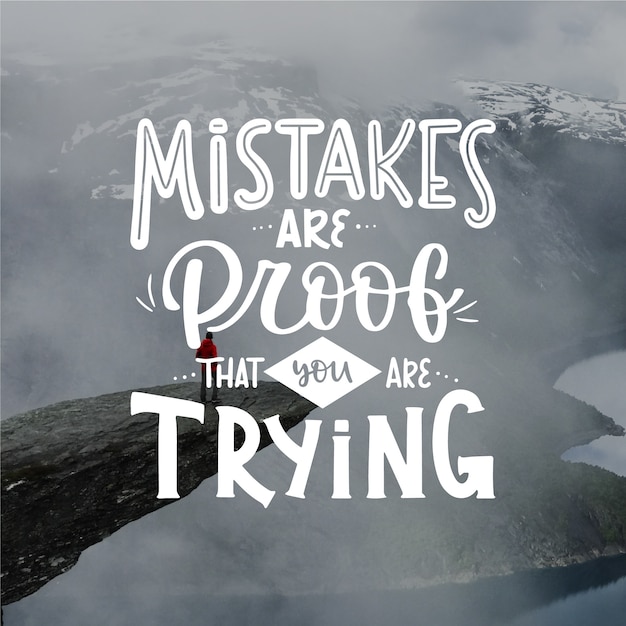Stressful situations are an inevitable part of modern life. Learning to manage high-stress situations requires that you make a special effort to remain calm, and maintain perspective while pursuing solutions to the problems causing your stress. Once the situation has been resolved, you can start taking steps towards relieving the tension associated with stress, and reducing the amount of overall stress in your life.
-Accept that stress is a part of life. While there are many productive steps you can take to reduce the overall stress you experience day-to-day, it is important that you realize that, no matter what, stressful situations will occur in your life. Accepting what you can’t change about the world will ensure that you aren’t wasting energy and time worrying about problems you can’t solve.
-Get perspective on your situation. Take a moment to step back from the situation, and evaluate just how important it really is in the grand scheme of things. Remind yourself that stressful situations pass, and are often not nearly as important as they seem while we are experiencing them.
-
- Think about the things which are really important in your life: your home, loved ones, dreams and goals, etc. Reminding yourself of what’s really important can help you gain perspective on more banal worries like work- or school-related stress.
- The way we respond to stress can seem quite humorous when we consider how unimportant the situation prompting the stress actually is. Feel free to laugh at the situation, and yourself, and share your sense of humor with those around you.
-Take action to improve the situation. Many people find themselves feeling paralyzed in moments of great stress, overwhelmed by the intensity and urgency of the situation. Remind yourself that you have the power to take control of your situation, then take steps to solve it, rather than complaining or simply trying to weather the storm.
-
-
- When stressed, be solutions-oriented. Rather than focusing on how stressful your current situation is, focus instead of brainstorming a plan of action to solve the situation, or think about the consequences of the situation and how you should prepare for them.
- For example, if you are involved in a stressful conversation or argument, try to understand what is bothering the other participants, ask them what they feel they need to happen to resolve the conflict, make your own feelings known, and propose solutions to the conflict, rather than becoming angry, or resorting to name-calling or other negative language.
-
Hopefully, the next time you’re dealing with difficulty, they may help you work through it with greater tolerance and grace.
1. “This is difficult, but it is temporary.”
All the difficult situations you dealt with in the past ended, right?
Well, this too shall pass, and will become another point of experience in your book of life.
Just like weather. We might experience torrential rains or blinding blizzards, but summer sunshine always comes back around again, doesn’t it? Clouds part, snows melt.
That doesn’t mean you can’t acknowledge that what’s going on right now is awful, but it is temporary.
2. “I can’t change what has already happened.”
Words can’t be unspoken, and shattered teacups can’t be glued perfectly back together.
You might be in difficult circumstances at the moment and wish you could go back five, ten years and do things differently, but that isn’t an option.
Accepting that we can’t change what has happened brings our focus back to the present moment, and helps us think about what we can do now to get things moving in a better direction.
You can’t undo getting into a relationship with a toxic person, but you can take the lessons you learned from it for a healthier future.
Similarly, you can’t undo eating that entire cake, but you can make healthier eating choices today, and tomorrow.
3. “Thoughts are just happening in my brain, they are not THE TRUTH.”
Our thoughts and emotions can spiral away from us when we’re dealing with difficult circumstances.
That said, more often than not, what’s actually going on has nothing to do with what we think is happening.
I recently worked with a young woman who was freaking out because she was sure her boyfriend was dumping her. He had been distant that day, didn’t text her at night as usual, and she went into full-on panic mode.
It was over, and she was going to leave him before he could hurt her, and and and… complete with hyperventilating and hysterical crying.
I calmed her so she didn’t take drastic action, and when they texted the next morning, he explained that his new allergy medication made him drowsy, and he’d fallen asleep putting his kid to bed.
That emotional maelstrom could have been avoided with this radical acceptance coping statement. Nothing in her head was TRUE. Just panicked thoughts, propelled by her own fears.
4. “I won’t drive myself crazy with things I can’t change.”
You’ve probably heard the expression that desire leads to suffering, and suffering leads to anger. Thank Buddhism and Yoda for that gem, but it rings true.
One reason why people suffer is the ever-present human desire to be in control. The thing is, we’re rarely actually in control of anything.
Accepting that there’s no control in a situation may be terrifying, but it also alleviates a lot of pressure. Instead of fighting against a current, you allow yourself to be carried along by it.
You’ll get to shore and safety, just likely not the location you originally thought you wanted.
5. “Dwelling in the past keeps me from appreciating what is in the present.”
This is an issue many people struggle with, especially if they have PTSD or borderline personality disorder from past traumas.
Many are angry, sad, and bitter about what transpired, and spend a lot of time re-living the anger and despair those situations caused.
But they aren’t in those situations anymore, and neither are you.
All we ever have is the present moment.
Every time you find yourself regurgitating past hurts, stop yourself, and bring your attention back to the present moment.
What can you see? Smell? Touch? Taste?
Now stay here, and appreciate what is.
6. “I have dealt with problems before and I can deal with this.”
If you’re reading this article, that means you’re alive. It also means that your track record for getting through difficult circumstances is 100%. Don’t forget it.
7. “I can accept things the way they are.”
Are you familiar with the expression “if wishes were horses, beggars would ride“? Basically, if all the wishes people made every day were actual horses, the world would be overrun by them.
We can wish things were different until the cows (horses?) come home, but those wishes won’t change what’s actually unfolding.
There is immense peace when we accept things the way they are, without wishing they were different. Once we accept those things, we can make plans to deal with circumstances accordingly.
Acceptance is power, and that power provides the calm we need for forward momentum.
8. “It’s a waste of time to fight what’s already occurred.”
How much time do you spend thinking about situations that have already happened, and envisioning how you would have reacted differently?
Every minute that you do that is a minute you’re never going to get back. What’s passed is past, and can never be revisited, nor redone. As such, there’s really no point in wasting your valuable time and energy on rehashing past events.
You don’t get a redo, but you can take the lessons you’ve learned and apply them to new circumstances as they unfold.
9. “I can feel anxious and still deal with this situation effectively.”
Many people who deal with anxiety and panic feel shame about it. They want to hide from their feelings instead of taking action, like they can’t trust their own judgements or choices.
Furthermore, they often feel like they’ll only be able to handle circumstances when they’re no longer feeling anxious.
You can, however, be panicky about a situation and still handle it effectively. You don’t need to wait for it to pass, or for the situation to change in order to be capable. It’s absolutely okay to feel anxious, and work around/through it to get things done.
After all, you can feel thirsty, and still answer an email. Similarly, you can feel anxious, and still do the thing. You’ll just be doing it while feeling an emotion.
Although these strong emotions may feel overwhelming at times, they don’t actually rule you. You can choose to work through them, and by doing so, lessen their hold on you.
10. “I can’t change other’s actions or words, but I can choose how I respond.”
You might be upset at a coworker who keeps dumping work on you, leaving you feeling overwhelmed and disrespected. Or triggered by something your parent or spouse says to you.
It’s up to you to set clear boundaries and say “no” when people overstep them.
Similarly, it’s up to you to decide whether you’re going to react to a trigger word or respond calmly once the initial emotional flash has subsided.
11. “I can accept myself the way I am.”
You’re perfect, exactly as you are.
Although you might wish you could be different, you’re a perfect expression of the universe experiencing itself. Every experience we have shapes us, and we are constantly changing and evolving.
If you can accept yourself the way you are, right now, without wishing you were different, that’s a huge step toward unconditional love.
And when you love yourself exactly as you are, you’re in a perfect position to love others that way too.
Be messy, emotional, quirky, and completely you. Because you’re amazing.
12. “It’s okay to feel this way.”
Whatever you’re feeling is absolutely okay. There are no such things as “bad” feelings: just feelings. A storm isn’t “bad”: it just is what it is. And it passes.
Feeling shame or anger because you’re suddenly hit with a wave of anxiety or guilt will just exacerbate the situation. Instead, try to remind yourself that this is a feeling, and feelings pass.
*
As we’ve touched upon, circumstances can never be changed sufficiently to suit our ideals. We can’t control the weather, random events, or other people’s actions.
When we accept what’s going on, as well as ourselves, unconditionally, then we have a firm foundation to create real change.
These coping statements can help to rein in strong emotions that are spiralling out of control. They bring us back to this moment, this breath. We accept what’s going on without condition or judgement. We don’t hold our breath until the circumstances better suit our preferences, or comfort level.
What we resist, persists.
When we radically accept what is, unconditionally, then we have the power to respond and adapt as needed.
Those unruly emotions no longer control us.
source: 12 Radical Acceptance Coping Statements To Deal With Difficult Emotions (aconsciousrethink.com)
source: Handle Stressful Situations – Kipkis


